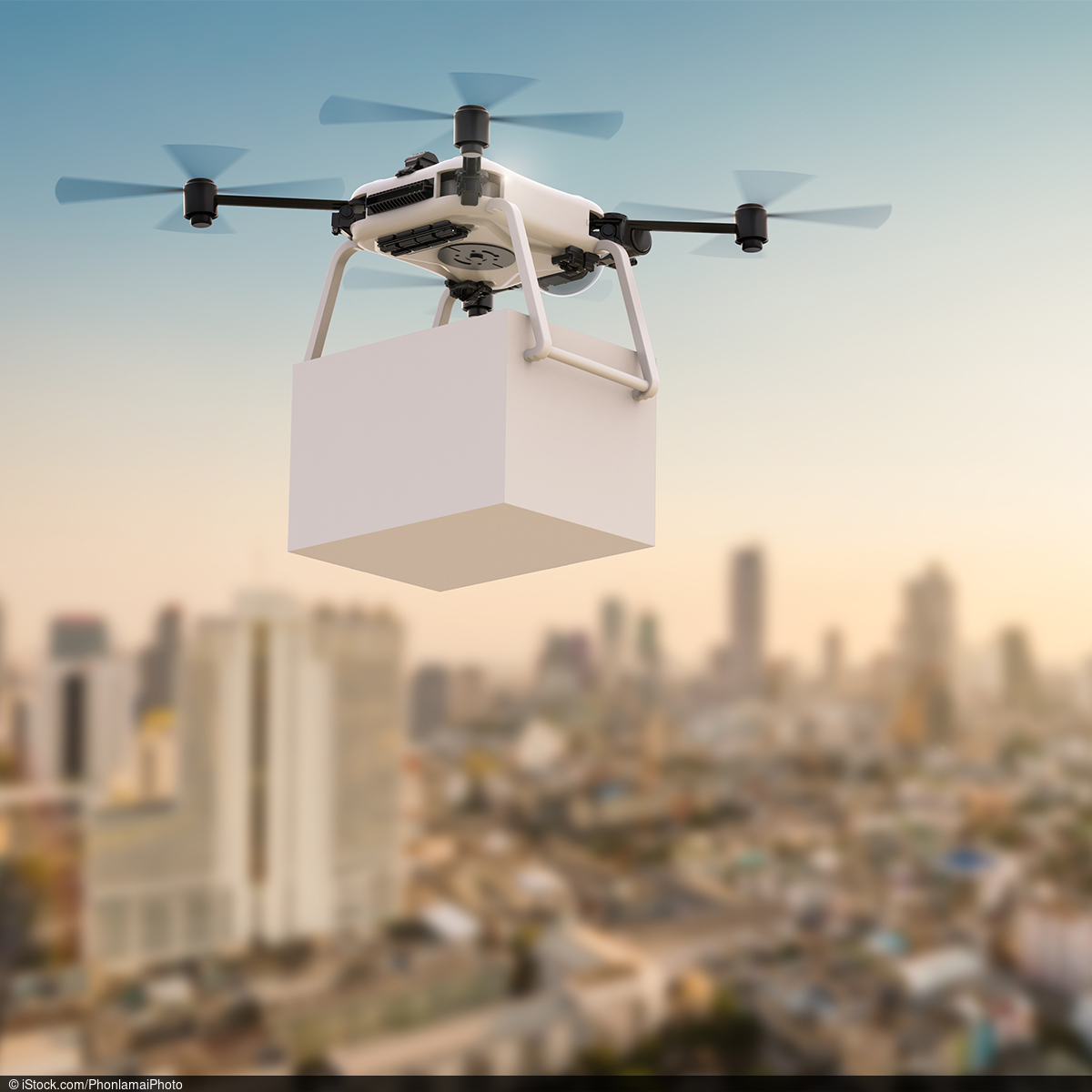Island Residents Hesitant About Parcel Delivery via Drones
ResearchThe majority of the residents of the North Frisian Islands and the Halligen oppose the idea of an initiative aiming to employ drones to close supply gaps. In interviews with researchers from ZEW Mannheim, the Leibniz University Hannover and the aviation researcher Bauhaus Luftfahrt, the residents voiced concerns - primarily regarding environmental protection, sustainability, appeal to tourists and whether drones can be deployed in bad weather conditions.
The researchers developed a concept to deliver parcels by drones that fly along fixed routes to specific landing place on the islands and Halligen. “These routes are based on the ferry routes to avoid the national park’s sensitive areas and to impact wildlife as little as possible,” says Dr. Anna Straubinger, researcher at the ZEW Research Unit “Environmental and Climate Economics”. Drone delivery is primarily intended to supplement the ferry service off-season and in times of low water levels. Several parcels are to be transported on each tour.
Residents concerned about environmental protection
The researchers are certain their drone delivery concept has the potential to improve the supply of time-critical goods to residents of the islands and Halligen. “However, in the interviews it becomes clear that the majority of the island residents are hesitant about this new technical solution,” says Straubinger. “Some respondents are opposed to the idea of using drones in general and regard the service to be neither sustainable nor necessary.” The most frequently stated arguments against drone deliveries are concerns regarding environmental protection - disturbance of wildlife, noise pollution - and its impact on recreational tourism. Furthermore, they express concerns about whether drones can operate at all during storms. Few respondents show interest in the implementation of the concept.
In the interviews, the respondents express a range of varying opinions on the current supply situation - depending on their individual connection to the mainland and the time of year. The local supply largely covers the residents’ basic needs. Respondents say shortages in supply primarily depend on the season of the year, tides and weather. “Supply shortages mainly occur for medicine, construction material and components for farming machinery,” states Straubinger. The island surcharge - higher freight cost for transporting goods to the islands and Halligen – is considered to be an additional limitation. As a result, online purchases are a crucial factor due to lower prices and a wider product range.
For this research study the Leibniz University Hannover, Bauhaus Luftfahrt and the ZEW Mannheim completed guideline-based interviews with six residents of the North Frisian islands and the Halligen. The guidelines consist of three sections: the current supply situation, potential limitations and the proposed drone delivery concept to bridge supply shortages.
Spatial planning in Germany
Establishing equal living standards in urban and rural areas is one of the main tasks of spatial planning in Germany, and the European Committee of the Regions prioritises creating equal living standards on islands and the mainland. People living in coastal areas, such as the North Frisian Islands and the Halligen, heavily depend on ferry services to supply food and everyday goods. Still, the availability of ferry services changes depending on weather, tide and seasonal tourism.

